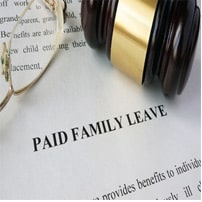 A recent case from the Pennsylvania Attorney General’s office has brought an important issue in employment law to many workers’ attention: when going on paid leave can harm an employee’s career. Typically, paid leave is thought to be a neutral action – the worker takes the time they need off work to attend to personal issues while receiving the same compensation they received when working full time. In the Pennsylvania case, though, a former FBI worker left the FBI to work in the Pennsylvania Attorney General’s office as a special agent. Allegedly, he spied on the former Attorney General, which resulted in him testifying against her in court after he sent a memo about a case she had closed that he felt should have been prosecuted. He then took 12 weeks of unpaid leave as permitted by the Family and Medical Leave Act of 1993 (FMLA) and requested additional time off, which was granted. When he attempted to return to work, he was prohibited from returning and instead, was placed on paid administrative leave.
A recent case from the Pennsylvania Attorney General’s office has brought an important issue in employment law to many workers’ attention: when going on paid leave can harm an employee’s career. Typically, paid leave is thought to be a neutral action – the worker takes the time they need off work to attend to personal issues while receiving the same compensation they received when working full time. In the Pennsylvania case, though, a former FBI worker left the FBI to work in the Pennsylvania Attorney General’s office as a special agent. Allegedly, he spied on the former Attorney General, which resulted in him testifying against her in court after he sent a memo about a case she had closed that he felt should have been prosecuted. He then took 12 weeks of unpaid leave as permitted by the Family and Medical Leave Act of 1993 (FMLA) and requested additional time off, which was granted. When he attempted to return to work, he was prohibited from returning and instead, was placed on paid administrative leave.
The former FBI agent filed a lawsuit claiming that his FMLA rights were violated because he did not have the opportunity to return to work, a right protected by the FMLA. Rather, he spent more than one year on administrative leave and because he did not return, he was terminated from the position. The court agreed that he was a victim of an adverse employment action, but ultimately dismissed the case because he did not attempt to return to work.
Paid Leave as an Employment Benefit
You are not entitled to receive paid leave at the state or federal level. Your employer may choose to make paid leave an employment benefit. However, if another employee with your same circumstance receives paid leave that you are denied, you may be able to file a discrimination claim. For example, if another employee receives paid maternity leave and you do not, you may be a victim of discrimination.
Beyond cases of discrimination, though, you are not entitled to paid sick or personal time off from your job. You are entitled to up to 12 weeks of unpaid time off to attend to personal and close family’s medical needs, including the birth or adoption of a child, under the FMLA. This law guarantees that employees who take time off can return to work following their leave. If a worker’s original position is no longer available, he or she can take an equivalent position with the company. If the employer offers additional leave, this right does not exist. This issue was the crux of the case discussed above – the former FBI agent felt that by providing the additional leave, his employer took action to keep him from returning to work, which resulted in financial losses due to lost salary, benefits, and advancement opportunities he would have had if he returned to work.
Philadelphia Employment Lawyers at The Gold Law Firm P.C. Represent Individuals Facing Employee Rights Violations
As an American worker, you have certain rights. If you believe your rights have been violated, speak with an experienced Philadelphia employment lawyer about your legal options for recourse. Complete our online form or call 215-569-1999 to arrange your initial consultation with one of the Philadelphia wrongful termination lawyers at The Gold Law Firm P.C. Our office is located in Philadelphia and we work with clients in New Jersey and Pennsylvania.





































